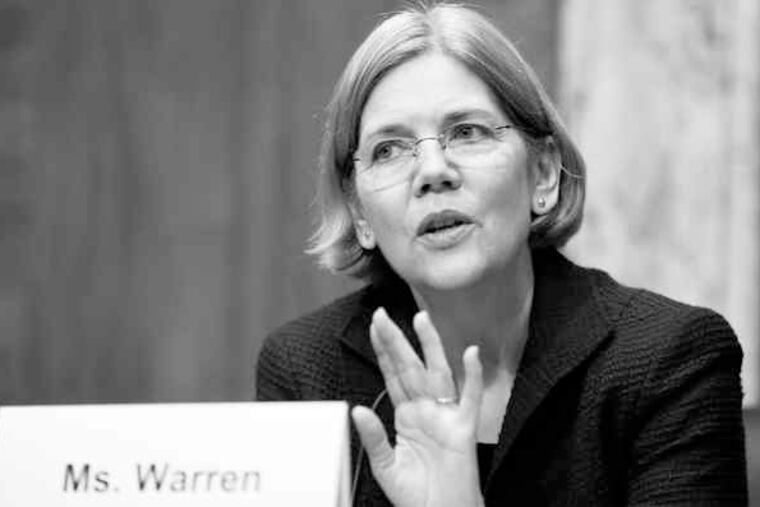Consumer Watch: Finance industry hard at work undoing reform
It was hard to reach any conclusion last week other than this: The finance industry is just too clever for its own - or our - good.

It was hard to reach any conclusion last week other than this: The finance industry is just too clever for its own - or our - good.
On one hand, lobbyists for the industry, bloodied but unbowed by America's worst financial crisis since the Depression, worked Congress trying to weaken the Obama administration's plan to make sure its business practices don't help trigger another calamity.
On the other hand, evidence continued to mount that some of the nation's leading banks have been busy trying to limit the effect of new credit card rules, designed to protect cardholders from long-standing practices finally found unfair and deceptive.
Here's an unsolicited tip for any industry: If you want to persuade Congress to ease up and let the market solve a problem, quit providing ammunition for the argument that it won't.
The administration's plan for financial reform is complex and multifaceted, befitting the range of problems it needs to address. The package includes everything from rules to rein in dangerous financial derivatives to a new process for coping with the collapse of large financial institutions without taxpayer-funded bailouts - so there will no longer be companies deemed "too big to fail."
But one of its key goals, and a flashpoint all year, has been creation of a new Consumer Financial Protection Agency. The CFPA would focus on protecting consumers from dangerous financial products, filling a role sorely missing from the pre-collapse marketplace and still absent today, despite a flurry of new consumer protections from the Federal Reserve.
On Friday, the CFPA narrowly survived as the House passed its version of the reform package. As the new agency will surely face a massive lobbying fight in the Senate, this is a good moment to recall why it's essential to protect not just consumers but the economy as a whole.
A festering problem
The CFPA was the brainchild of Harvard law professor Elizabeth Warren, the bankruptcy expert who heads Congress' oversight panel on the bailout. She fleshed out the idea with New York University's Oren Bar-Gill, a law professor with a doctorate in economics, during the midst of the financial collapse in an article in the University of Pennsylvania Law Review that they titled "Making Credit Safer."
A year later, you don't need a scholar to tell you how badly certain consumer financial products have blown up in all our faces.
The housing bubble was fed by exotic and subprime mortgages, many offered to people who should never have qualified for loans so large. With that borrowed money, they bid up prices in neighborhoods around the nation, fueling new rounds of feverish borrowing. In some places, housing prices will take years to recover.
Heavily promoted credit cards with tricky terms, such as "any time, any reason" rate increases and "universal defaults," contributed to record levels of consumer debt and a tide of bankruptcies. As home prices fell and joblessness rose, consumers with large loads of credit card debt were increasingly trapped without an escape valve.
You may not be personally sympathetic to people who didn't exercise fiscal prudence. But the tricks and traps of credit card contracts, and the proliferation of dangerous and inappropriate mortgage loans, put the entire country at risk. They were two key steps on the road toward the financial collapse.
Taking blame, dodging a fix
The finance industry hasn't shirked all responsibility for what went wrong. Many companies and industry groups admit playing a role, or at least blame "bad actors" in other corners of the business.
But as a whole, the industry continues to resist important changes - even as key players continue to show why those changes are needed.
Just one example: The Credit Card Act, passed by Congress earlier this year, will soon bar card issuers from raising rates on existing balances under "any time, any reason" clauses or for being a few hours or days late on a payment - a common practice during the last decade.
So what did Citibank recently do to a swath of its customers? It raised their "regular" rate to 29.99 percent, and then promised them a rebate of 10 percentage points each month if they continue to pay on time. In essence, Citibank devised an end run around the new rules.
Citibank isn't alone. Recent reports by consumer groups, including one last week by the Center for Responsible Lending, have identified a series of similar devices to game the system even before most of the new rules take effect Feb. 22. The card issuers' clever lawyers have decided that boosting revenue is more important than honoring the spirit of the new law.
Of course, that's no surprise to Bar-Gill. One reason he and Warren proposed a new regulatory structure was their recognition that consumer financial products are simply contracts. As contracts, they are easily malleable - sometimes changeable, as with credit cards, even after the consumer initially accepts their terms.
"Even a nimble regulatory agency will always be playing catch-up to market participants," Bar-Gill told me Friday.
His hope, like that of other CFPA supporters, is that an agency focused solely on consumer protection can act swiftly if it discovers unfair or deceptive products or other problems. Also a crucial goal is to separate the functions of so-called "safety and soundness" regulators - who will always be inclined to favor practices that boost a bank's bottom line - from those charged with protecting consumers.
It took the Fed and other regulators, not to mention Congress, more than a decade to catch up to abuses in the mortgage and credit card industry that caused harm to individuals and risk to the whole financial system.
No system is perfect. But the CFPA could help avert the next financial crisis.